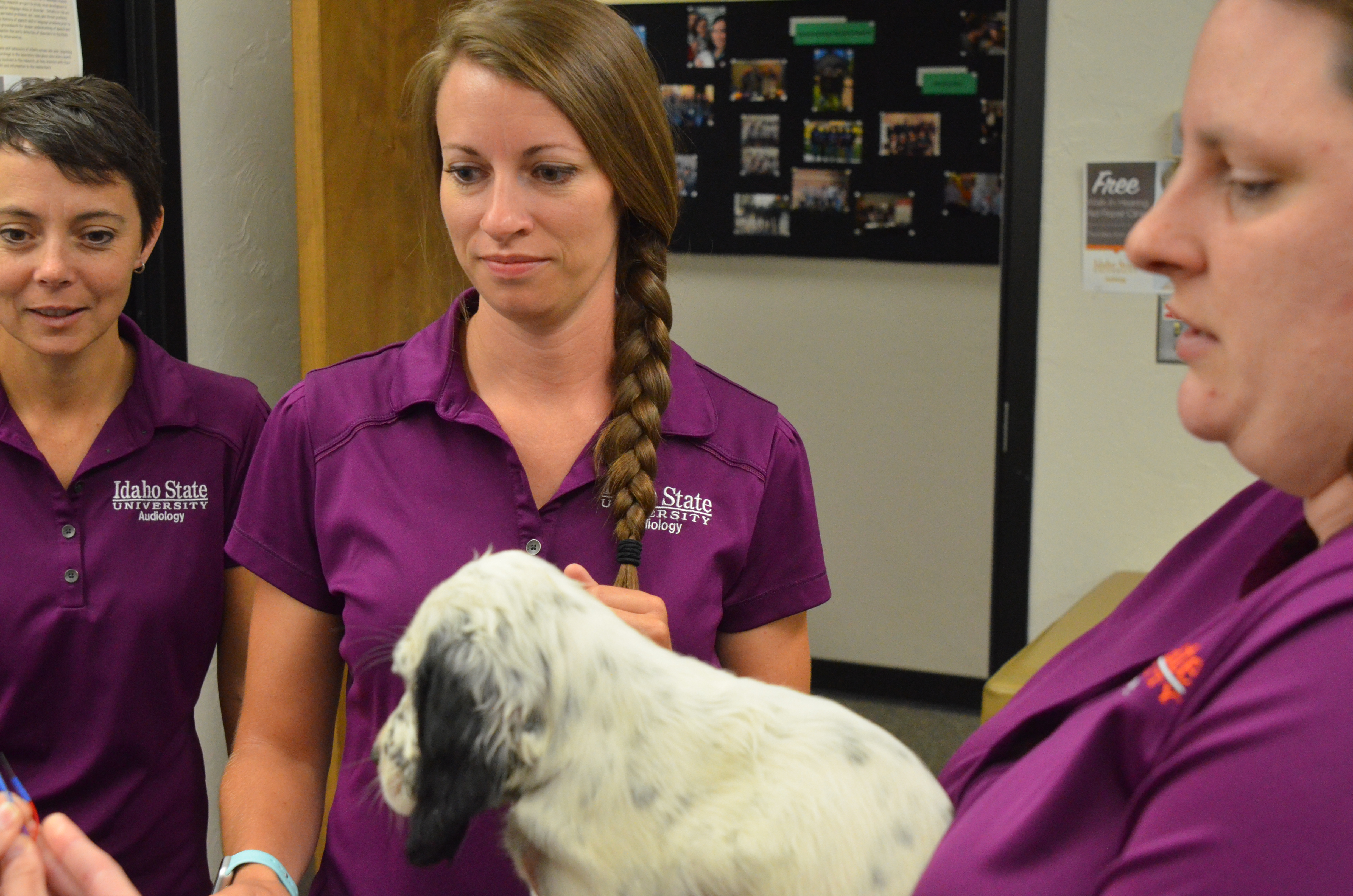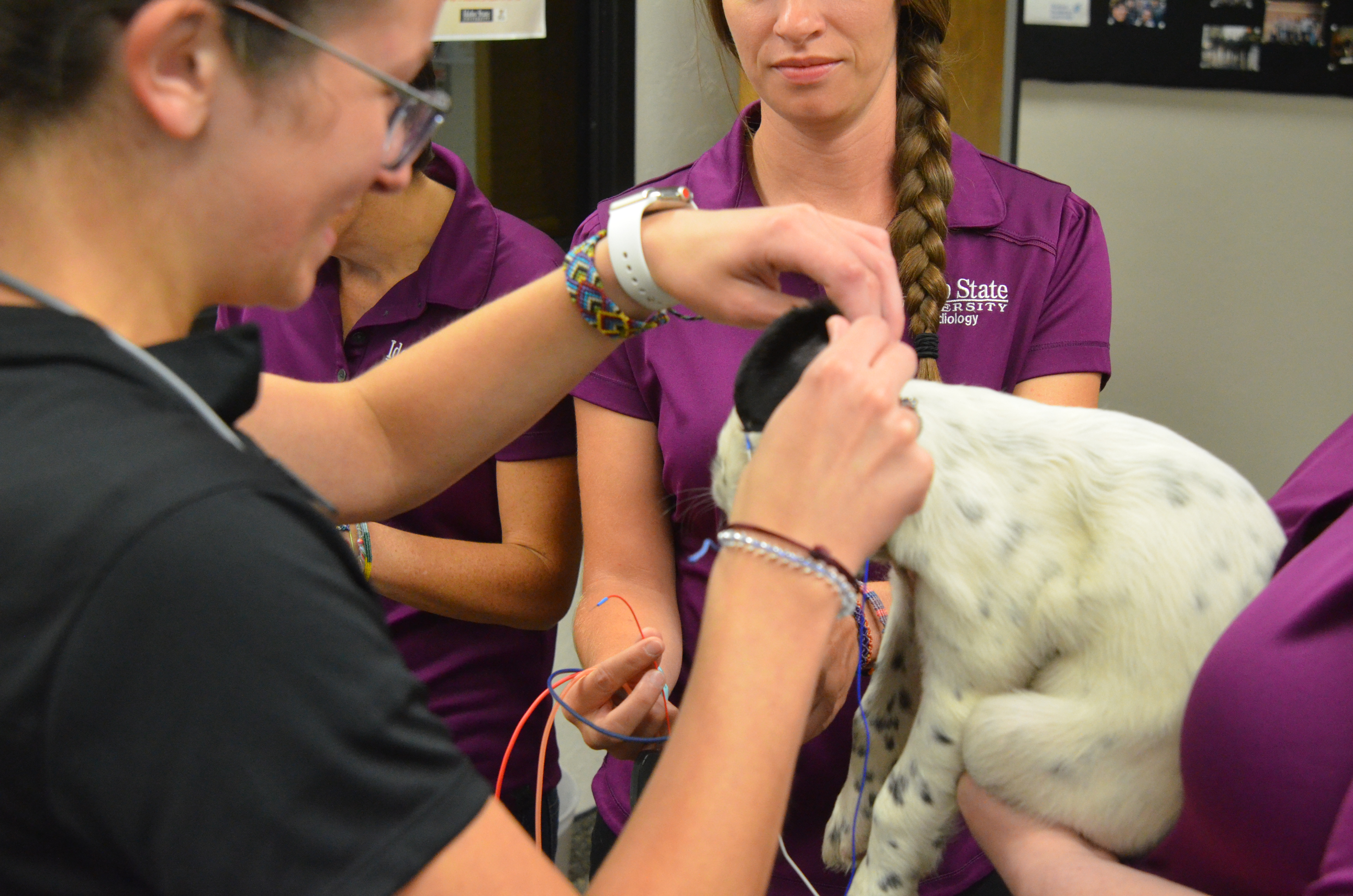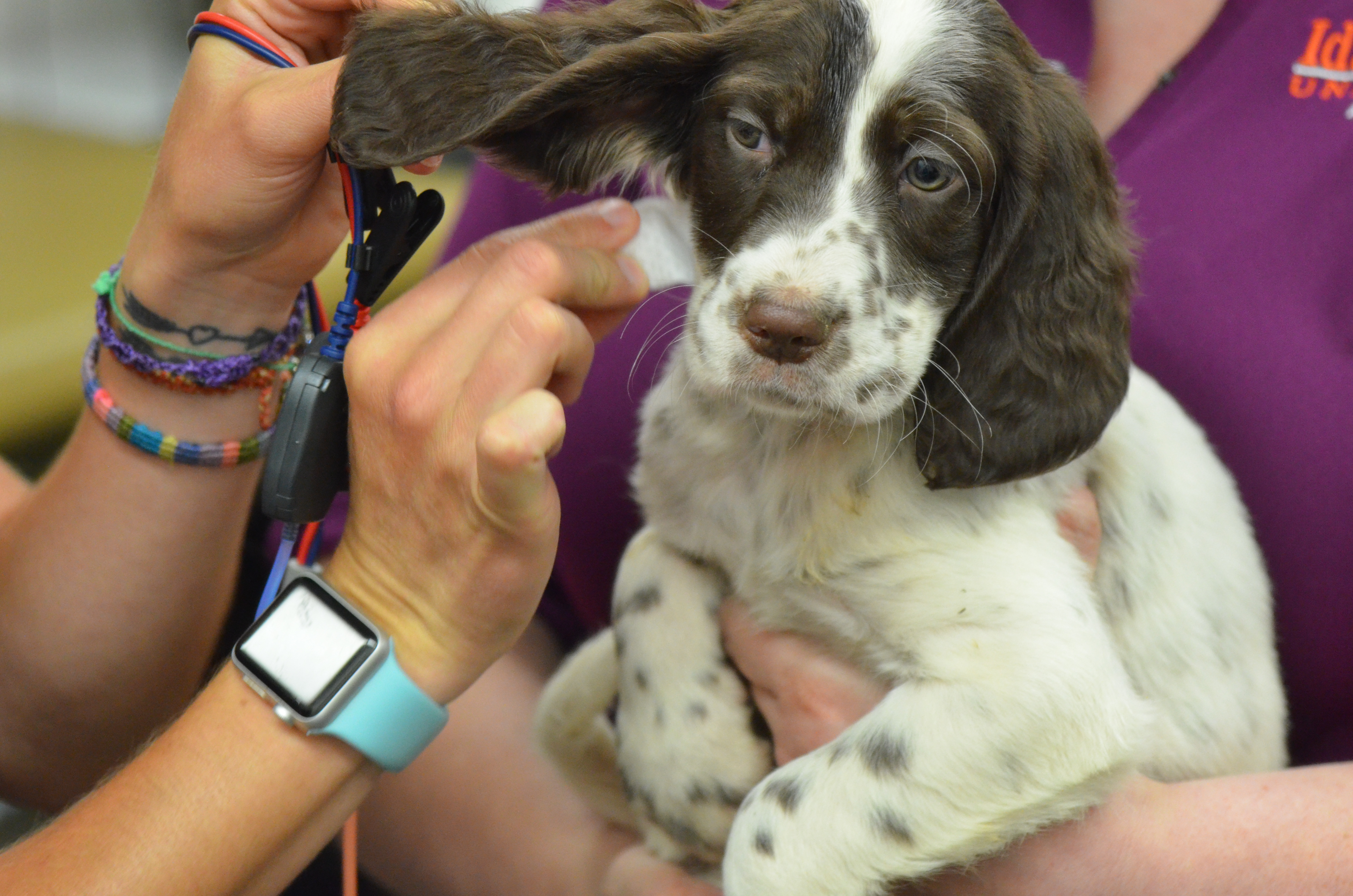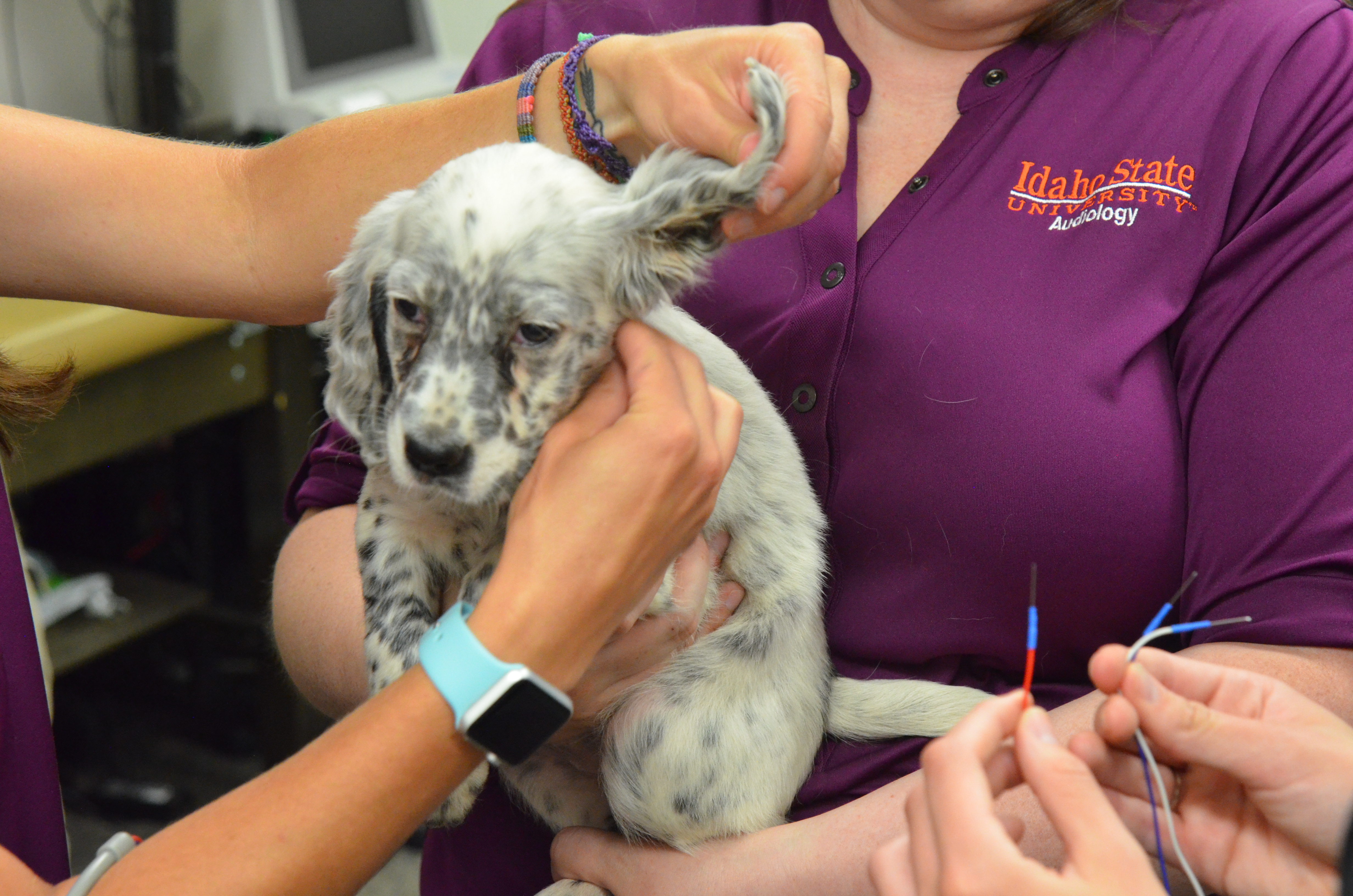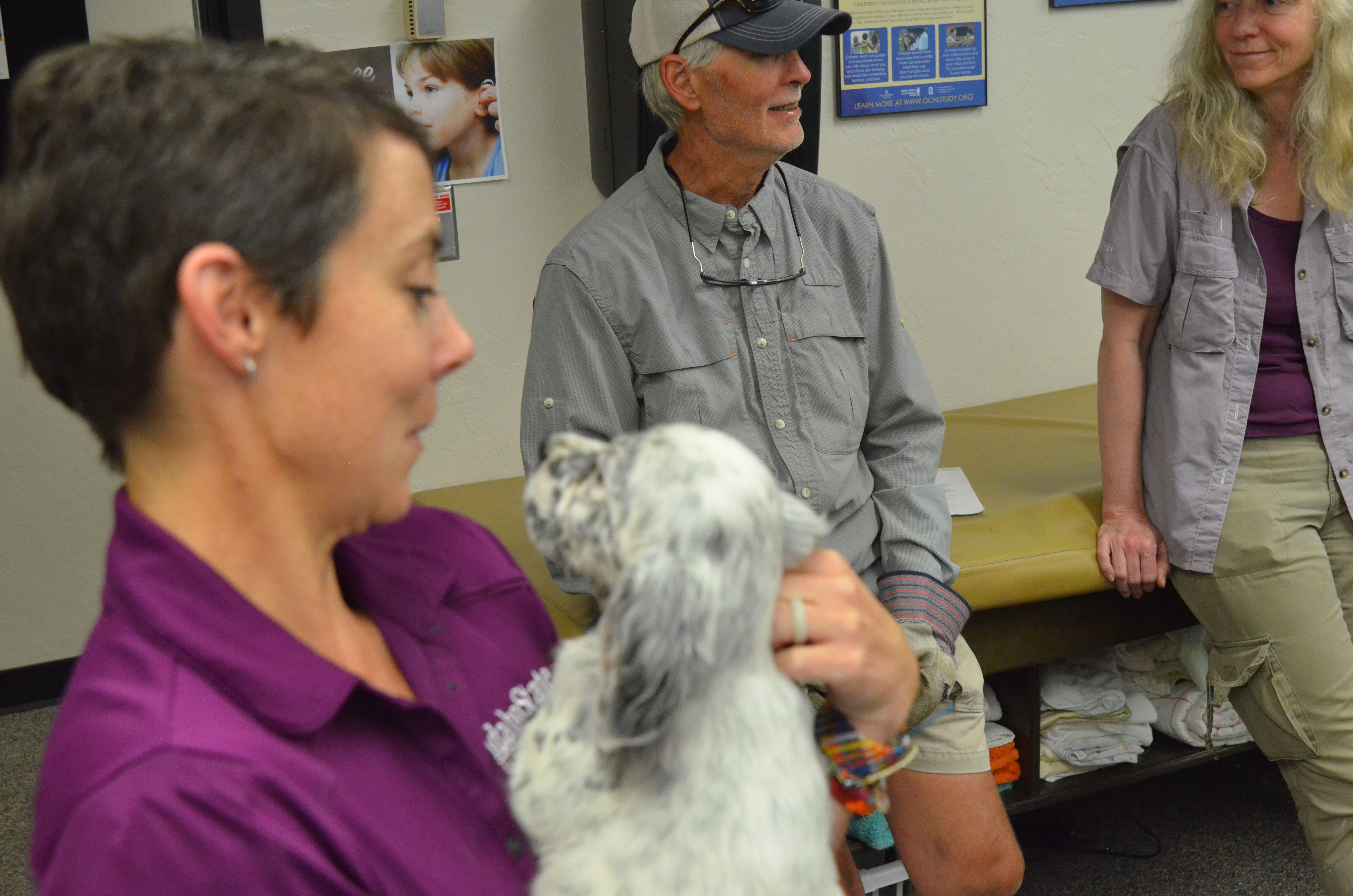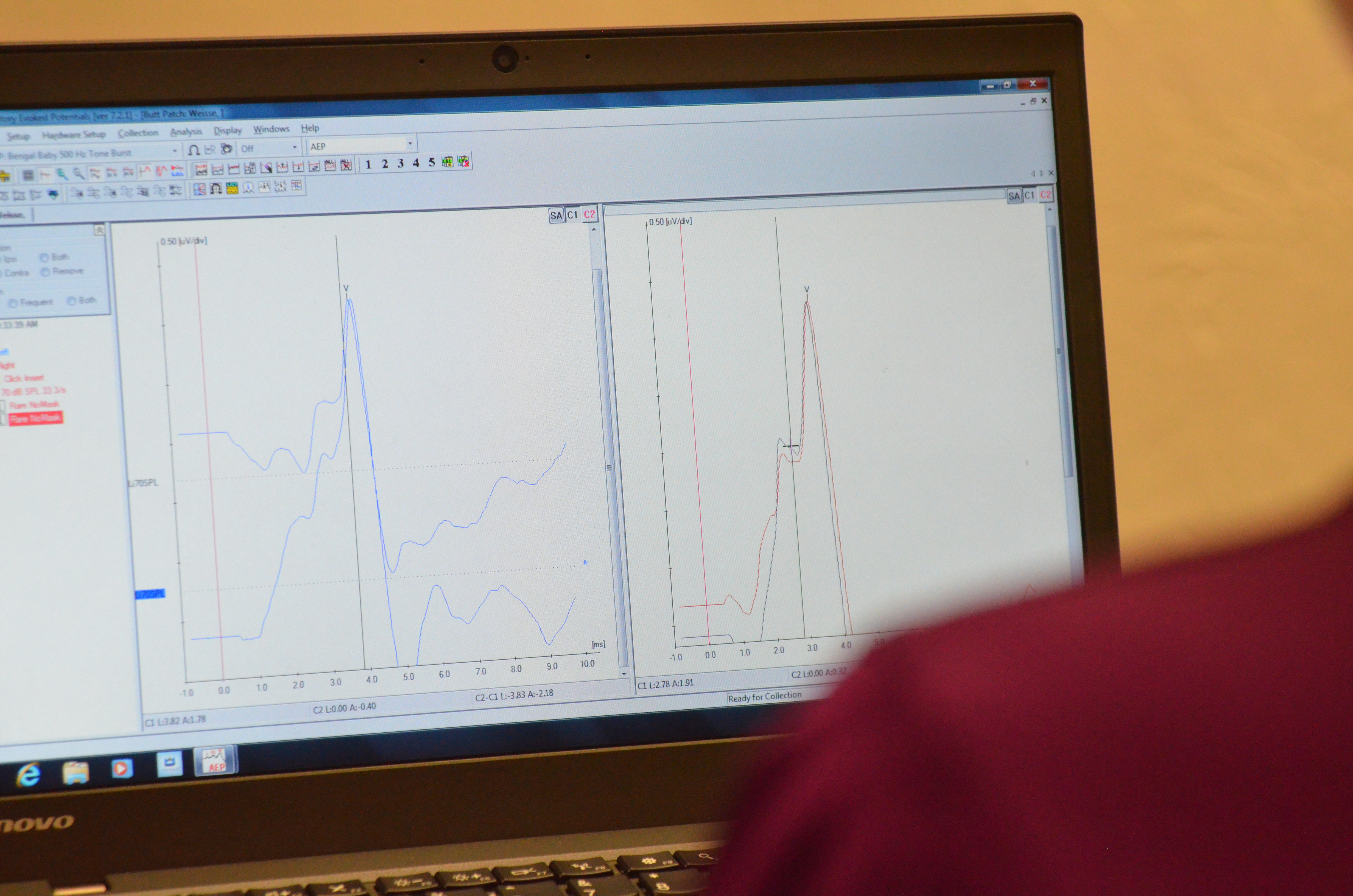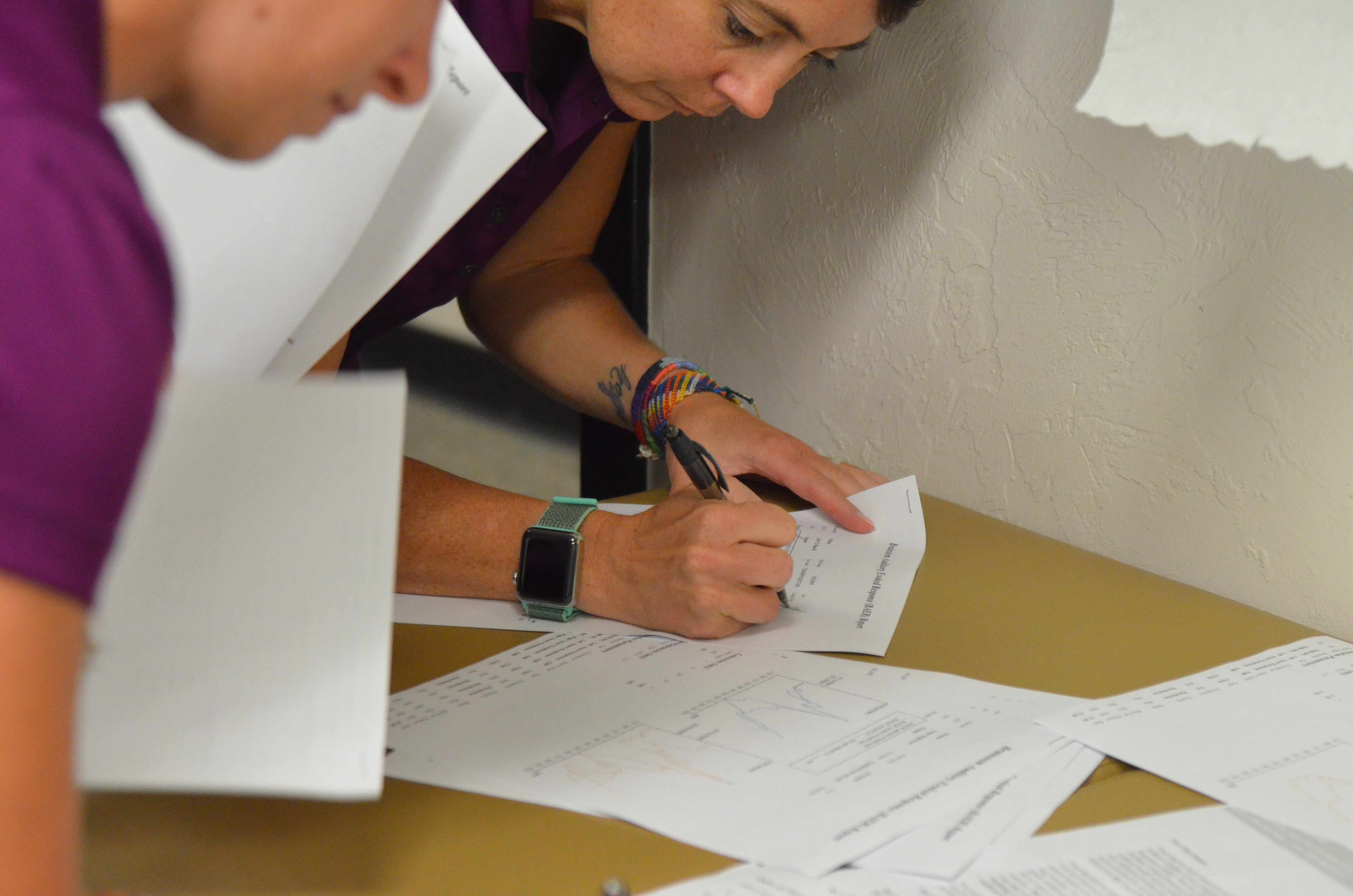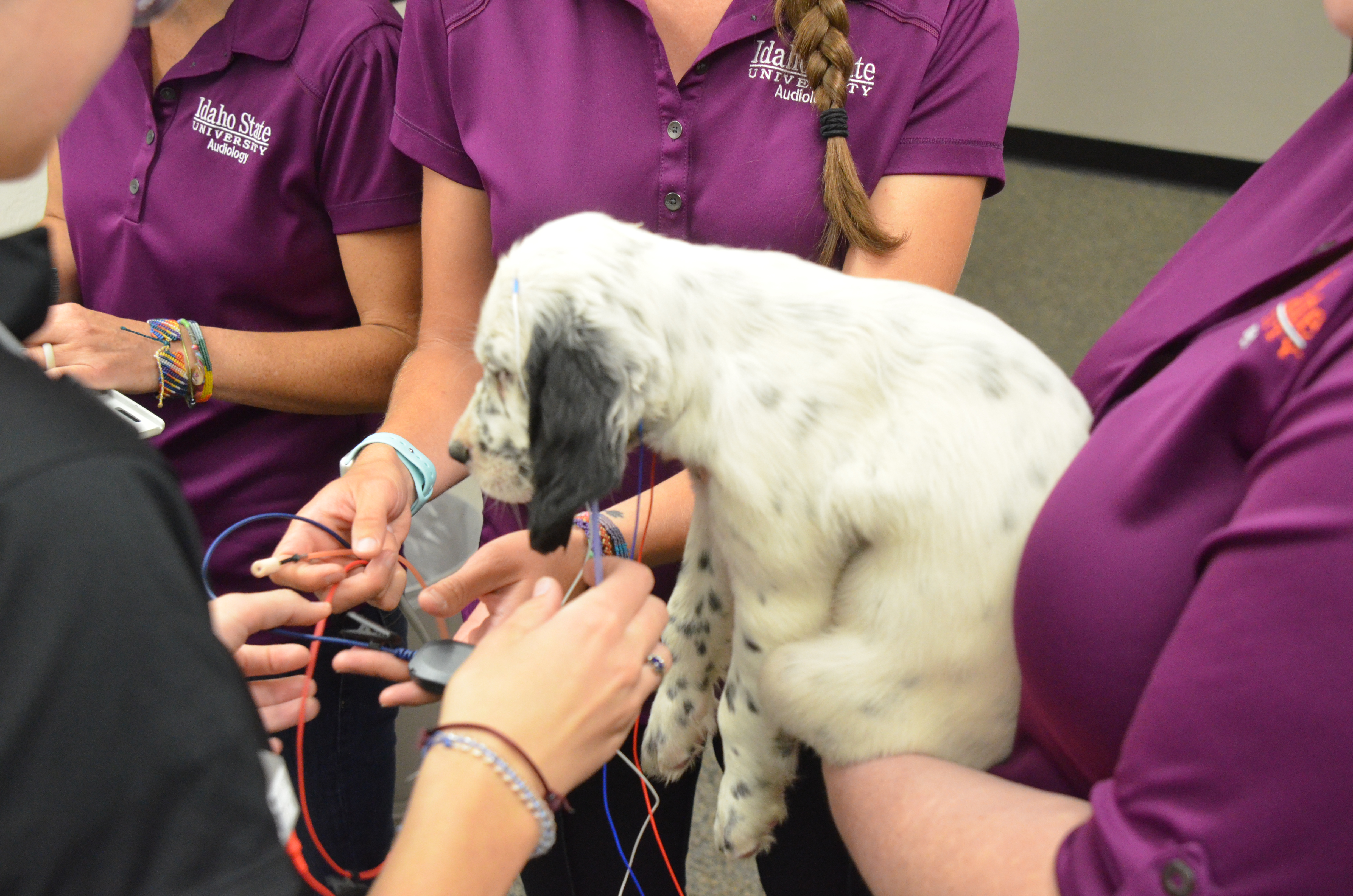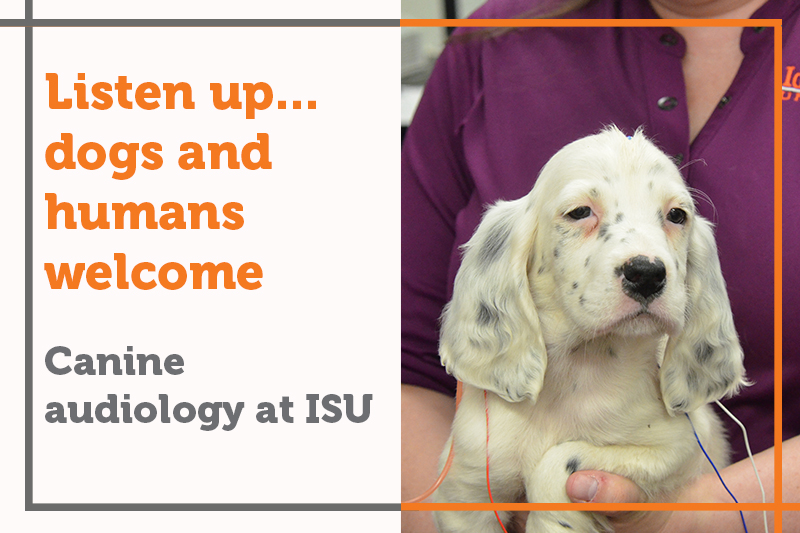Listen up... dogs and humans welcome at Idaho State University audiology clinic
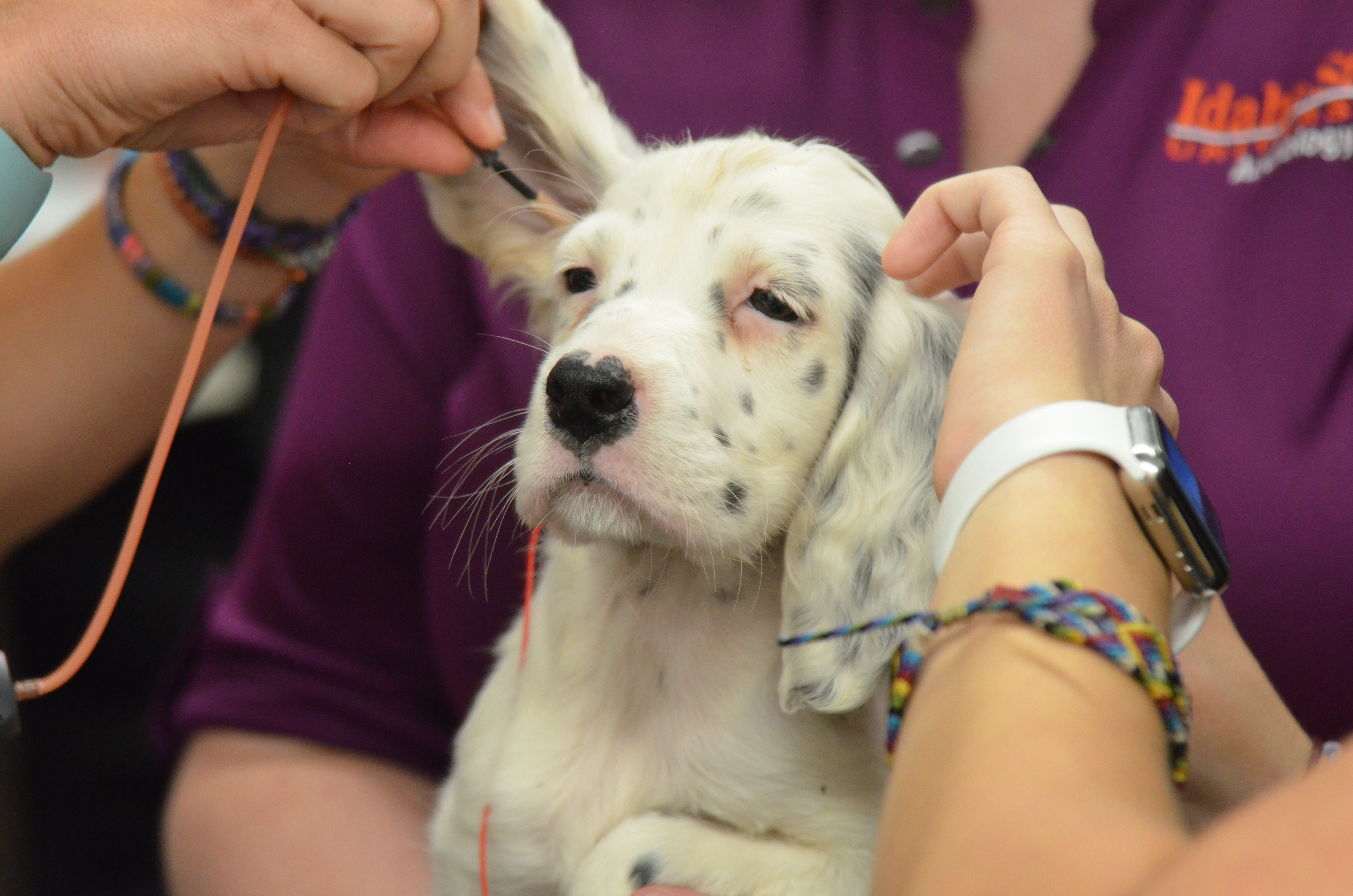
A visit to the audiologist, or “hearing doctor” can help identify potential abnormalities in a patient’s hearing, inner ears, balance, and a number of other auditory and sensory issues. It is recommended that newborn babies have a hearing screening before leaving the hospital, or at least within the first three weeks of birth. For those who may not know, there are similar screenings and tests for our furry friends. Canine audiology is available for dog owners and breeders at the Audiology Clinic at Idaho State University as part of their list of specialty services. The canine service providers at the clinic are approved by the Idaho State University Institute for Animal Care and Use Committee..
Jennifer Holst, AuD, CCC-A is the director for the Audiology Clinic at Idaho State. Holst says she and the other audiologists there enjoy working with their patients, both human and canine equally.
Providing the uncommon canine audiology service in Pocatello, Idaho has proven to be beneficial for both the clinic and breeders from across the Northwest. For one local breeder, making the short trip recently from Island Park to ISU means peace of mind and reassurance that their two-month-old Ryman setters are healthy and ready to be delivered to their new owners. For faculty at ISU, the canine audiology clinic provides a rare opportunity for hands-on training for audiology students that is not found at other universities.
Cliff and Lisa Weisse own October Setters, where they breed dogs to produce two to four litters every year. Ryman setters are typically bred for their natural hunting abilities, where they utilize their keen sense of hearing to detect or track birds and other animals. They are also calm and affectionate around the house. Since this particular breed can be prone to hearing loss at birth, a check with the audiologist at an early age can help determine a plan of action. If hearing loss is identified, most breeders will ensure that the puppies go to homes where proper training can be provided.
Breeders from across Idaho, Utah, Nevada, Colorado, Oregon and Wyoming visit the Idaho State University clinic to have their dog’s hearing checked each year. Since canine audiology testing are not commonplace, the ISU audiologists rely on word of mouth among the breeders, along with a listing on a national database, to receive the required referral s from veterinarians. Samantha Will, an Idaho State graduate audiology student in Pocatello hopes to change that. Her doctoral research project focuses on collecting and sharing normative data about canine audiology testing. She hopes to be able to add additional canine testing services at the clinic and make the services more readily available across the country.
Will was fully immersed in a testing session that took place with October Setters recently, placing small subdermal needles in three locations on each dog, along with foam ear insert phones. Assisting Will with the needle placement and holding the puppies, a job they say they could do every day, were Nancy Cheadle, AuD, CCC-A and Corrie Holmes, AuD, CCC-A, clinical assistant professors for Idaho State. Holst then evaluated whether or not a response was present in the dogs, following a series of sounds, via computer software.
It is easy to see that the group has the experience needed to perform such testing, whether with infants, toddlers, adults, or setter puppies. As Cheadle gently rocked the puppies to keep them calm, a few nearly drifted off to sleep in her arms. They seemed to be unaware that behind the computer, they were being evaluated using the Brainstem Auditory Evoked Response (BAER) test, one of the same tests given to children and adults at the clinic.
Will and her faculty advisors’ research will culminate in a podium presentation at an upcoming conference in Florida for the American Speech and Hearing Association where they are eager to share their findings.

